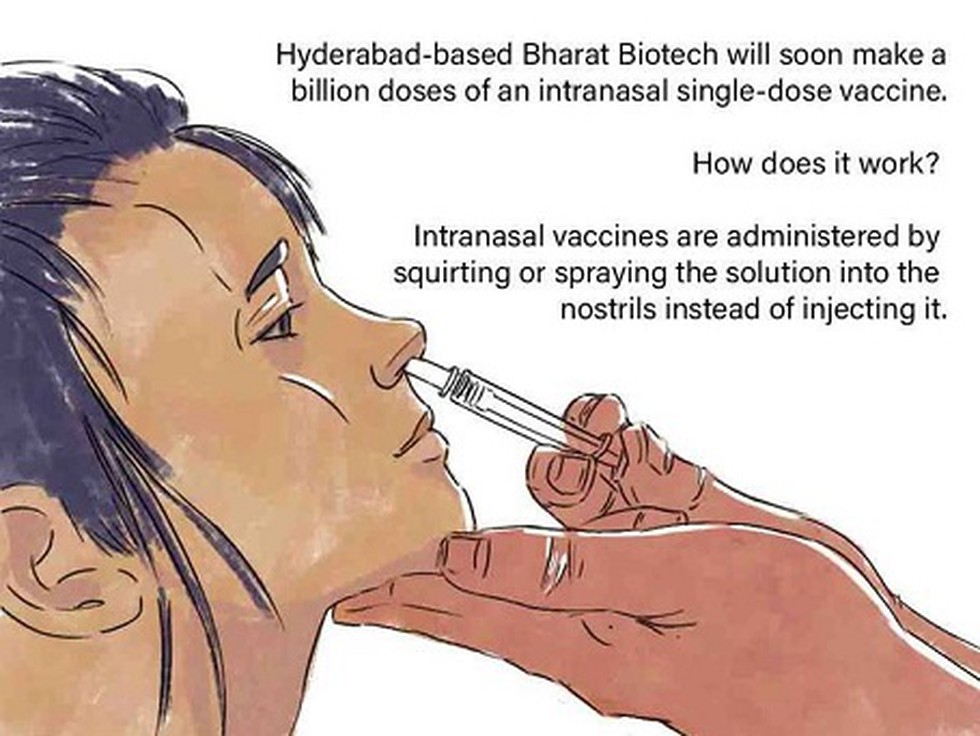About:
- Vaccines are usually given through different routes, with the most common being injectable shots delivered into the muscles (intramuscular) or the tissue just between the skin and the muscles (subcutaneous).
- Other routes of delivery, especially in some vaccines for infants, include administering the liquid solution orally instead of injecting. In the intranasal route, the vaccine is sprayed into the nostrils and inhaled.
The importance of such vaccines
- Many viruses, including the coronavirus, enter the body through mucosa — wet, squishy tissues that line the nose, mouth, lungs and digestive tract — triggering a unique immune response from cells and molecules there. Intramuscular vaccines generally fail at eliciting this mucosal response, and instead rely on immune cells mobilised from elsewhere in the body flocking to the site of infection.
- Experts believe an intranasal vaccine will act against the virus from the time it tries to break the body’s barrier, thereby making it more effective than the intramuscular ones in many cases.
- These vaccines aim to overcome potential difficulties with mass vaccination and reduce the cost by doing away with the need for needles and syringes. Intranasal vaccines are also expected to cut down on the dependence on various trained personnel to administer the vaccine.
